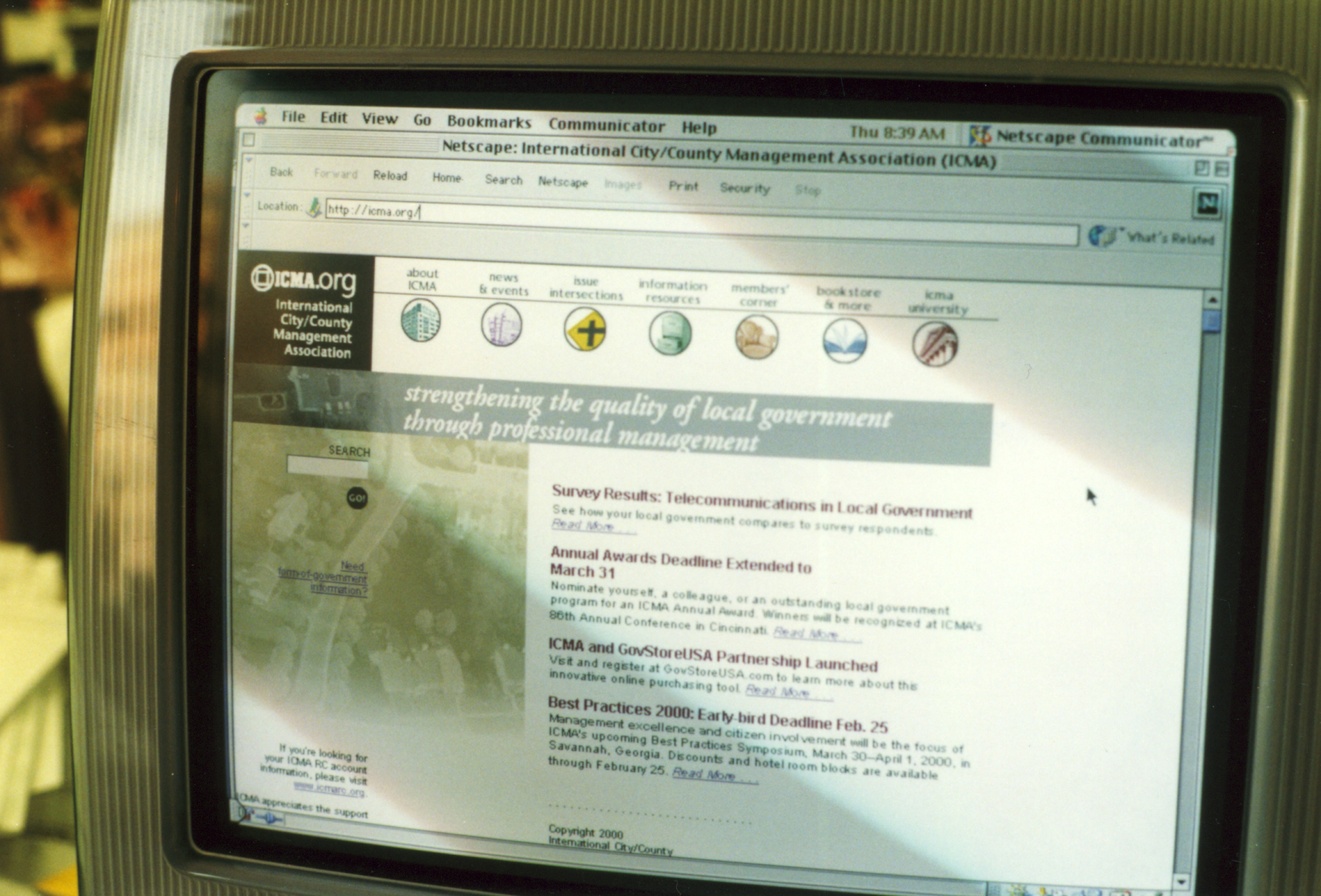
In order to appreciate the major impact technology has played on the discipline and practice of local government management during the past 100 years, it is important to start with a meaningful definition: Technology is not just the information technology or IT that is so pervasive today, but any process or technique that helps us get more work done out of a given investment in salaries and equipment.
In this way, technology can be found when a solar energy strategy improves the sustainability of neighborhoods; when residents adopt a new way to transform yard waste into fertilizer; and, yes, when a town issues a great new cellphone app that permits residents to take photos of potholes and alert managers to the problem.
ICMA Leads the Way
ICMA has been at the forefront of this technology explosion, not only institutionally with the creation of such organizations as Public Technology, Inc. (PTI), that had technology development and deployment as its sole mission, but also by providing direct training and educational sessions over the decades so that ICMA members could appreciate the changes under way and take advantage of them in an effective manner.
My own personal experience with technology at the local government level began in 1971 as an ICMA employee assigned to the executive director’s office. I saw an incredible expansion of the technology knowledge that managers acquired over the intervening 43 years—from interacting with research and development managers at the GE Research facility in Schenectady, New York; to confronting privacy issues with Microsoft engineers at its Bellevue, Washington, campus; and engaging in solution searches for firefighting methods with the engineering leaders of the Naval Research Laboratory outside Washington, D.C.
In all of these encounters and many more, including countless workshops, international tours, and technology exchanges, what motivated ICMA members was a desire to improve on the status quo and push the envelope of productivity by expanding their skill set to include not only traditional public administration skills but also a working familiarity with the new jargon and new tools and approaches of technology management.
Impact of IT Explosion
The most significant change occurred in the 1980s with the information technology explosion that brought the introduction of large-scale computers in the financial and human resource functions. This, in turn, led to the 1990s that brought home the power of the Internet, and, finally, to the twenty-first century when productivity and computing took a quantum leap with personal smartphones and cloud computing.
The impact was felt at three levels: at the personal level of the ICMA member and his or her use of such portable devices as the Mod100 all the way up to the I Phone 5c today; at the organizational level with the evolution from mainframes to PCs and now to networked smart devices in city halls and county courthouses; and finally at the community level where the needs and aspirations of individual community members can be identified and dealt with discretely and directly.
The community tier is now truly the new frontier as managers are trying to explore the benefits and challenges of open data strategies, as well as the use of cloud computing and big data to create new service delivery approaches and improve efficiency for all government functions.
Guiding Principles for the Future
What’s next? Truly an impossible question to answer, but here are a few guiding principles to help ICMA members resolutely address the technological future:
- Equity and fairness must pervade all our technological advances and implementations.
- Collaboration at all levels of the organization and with the outside world must lead the way.
- The human approach—the “orgware” element—must be allowed to dominate hardware and software considerations at all times.
This has been one exciting trajectory for ICMA and its members. In the first 100 years of the profession, the members have kept technology tamed and in check, working on behalf of all of us.
Let us hope that the same indomitable result of constantly improving and providing efficient services, pivoting away from organizational concerns and moving toward the needs of the individuals served by local government, and providing the gift of empowerment through democratic discussions with more and more residents is celebrated in the next 100 years!
New, Reduced Membership Dues
A new, reduced dues rate is available for CAOs/ACAOs, along with additional discounts for those in smaller communities, has been implemented. Learn more and be sure to join or renew today!
